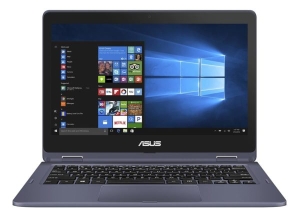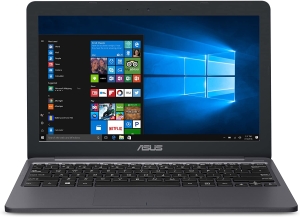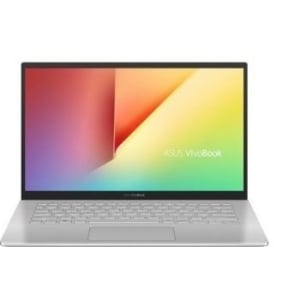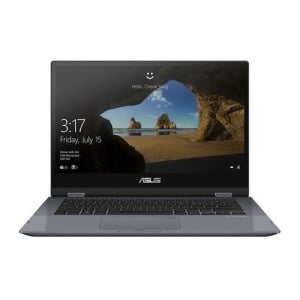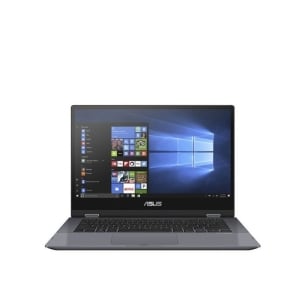ASUS Zen Book UX425EA-HM046T (CORE i7 1165G7 2.8 GHZ, 16GB, 1TB, Win 10)

- Choose the product you want and add it to your cart.
- Proceed to checkout and fill out a short form.
- Click on "Tap Payment," and a secure window will pop up.
- Select Tabby as your payment option within the pop-up.
- Enter your mobile number and receive an OTP code.
- Complete additional verification, such as providing your EID & other details.
- Enter your Full Name and perform ID Verification.
- Finally, press "Buy Now" to complete the purchase.
The ZenBook’s battery results didn’t blow me away, however. Our test involved running the system through my daily workload (using around a dozen Chrome tabs, downloading, uploading, copying files, Google Sheets, Zoom calls, and other office stuff) on the Better Battery profile around 200 nits of brightness — it lasted seven hours and 20 minutes.
PRODUCT OVERVIEW
The ZenBook’s battery results didn’t blow me away, however. Our test involved running the system through my daily workload (using around a dozen Chrome tabs, downloading, uploading, copying files, Google Sheets, Zoom calls, and other office stuff) on the Better Battery profile around 200 nits of brightness — it lasted seven hours and 20 minutes. That’s identical to the result we saw from the Dell XPS 13, but it doesn’t come close to the gargantuan life span of Lenovo’s IdeaPad Slim 7, which made it 13 and a half hours. Charging speed was also fine, but not mind-blowing — it took 58 minutes and 40 seconds to juice up to 60 percent (during light use).
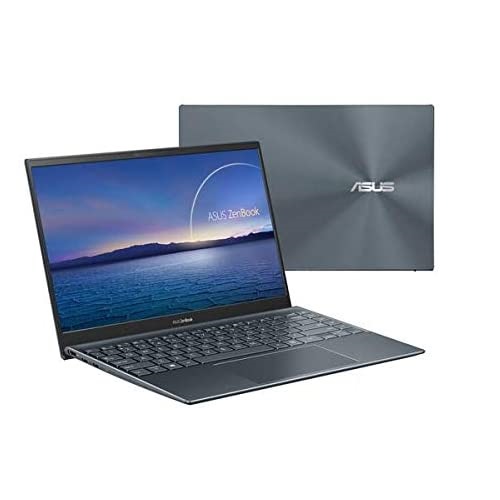 I got to try the flagship Core i7-1185G7 in an Intel reference design earlier this month, and the results I saw from Intel’s new integrated graphics were excellent. So I had high expectations for the very similar 1165G7 as well, particularly on the gaming front. I went into this review with two main questions: does the 1165G7 beat its Intel predecessor (the 1065G7, which powers the most recent) and does it beat AMD’s Ryzen 7 4800U (part of Lenovo’s IdeaPad Slim 7)? The answer to both of these questions is yes — albeit not as badly as I expected.
I got to try the flagship Core i7-1185G7 in an Intel reference design earlier this month, and the results I saw from Intel’s new integrated graphics were excellent. So I had high expectations for the very similar 1165G7 as well, particularly on the gaming front. I went into this review with two main questions: does the 1165G7 beat its Intel predecessor (the 1065G7, which powers the most recent) and does it beat AMD’s Ryzen 7 4800U (part of Lenovo’s IdeaPad Slim 7)? The answer to both of these questions is yes — albeit not as badly as I expected.
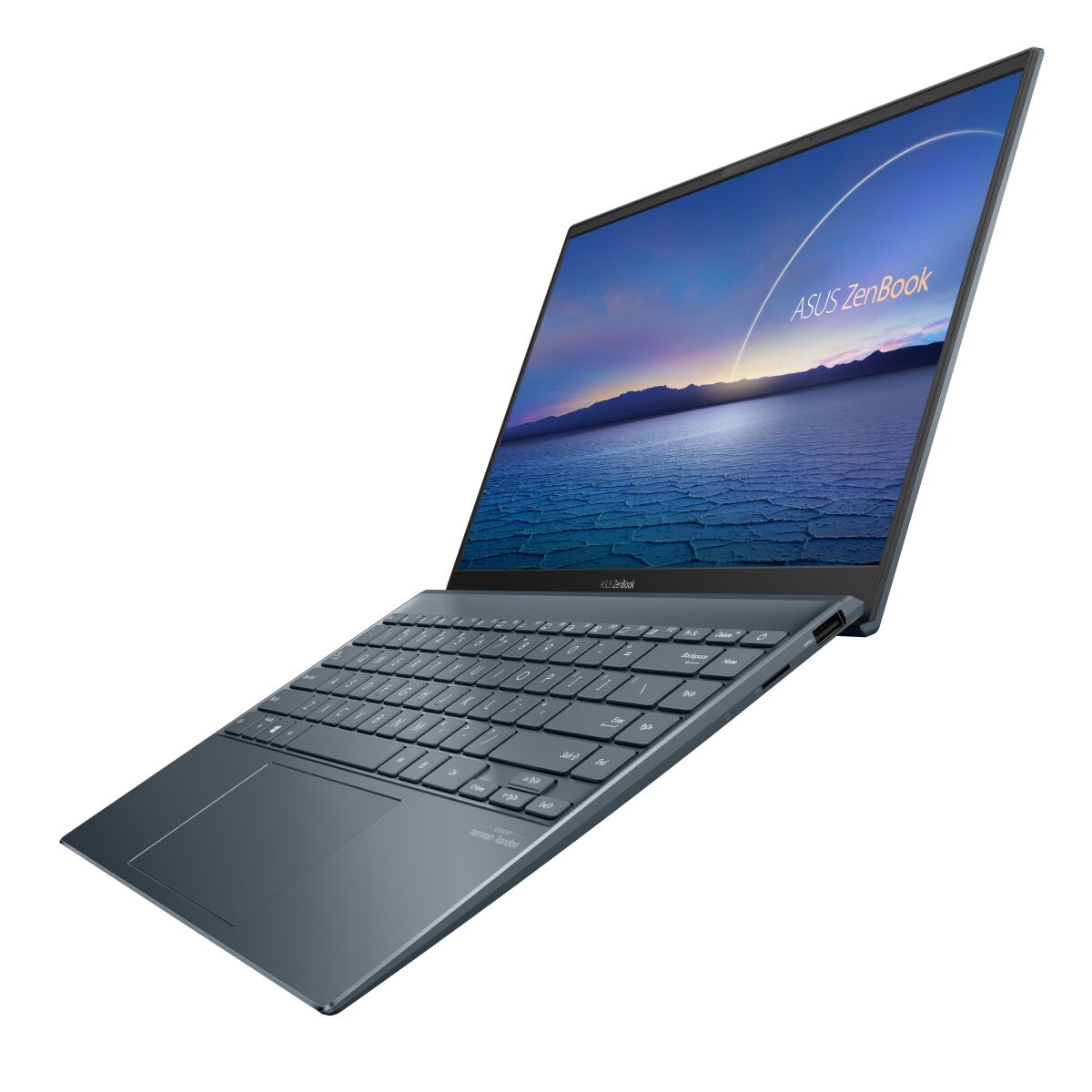 THE APPEAL OF THE ZENBOOK IS IN ITS PORTABILITY First, a quick ZenBook 14 crash course. The appeal of this line (and the UX425 in particular) is in portability over performance. The UX425 is light for a 14-inch laptop at 2.49 pounds (1.13kg) and thin at 0.54 inches (13.72mm). Asus has managed to work the display into a chassis that doesn’t feel too much larger than that of most 13-inch rigs — there’s a 90 percent screen-to-body ratio, thanks to the thin (2.5mm) bezels on the sides of the display. (The top and bottom bezels are more visible than those of the Dell XPS 13, but they’re not terrible — 6.2mm and 10.9mm, respectively.)
THE APPEAL OF THE ZENBOOK IS IN ITS PORTABILITY First, a quick ZenBook 14 crash course. The appeal of this line (and the UX425 in particular) is in portability over performance. The UX425 is light for a 14-inch laptop at 2.49 pounds (1.13kg) and thin at 0.54 inches (13.72mm). Asus has managed to work the display into a chassis that doesn’t feel too much larger than that of most 13-inch rigs — there’s a 90 percent screen-to-body ratio, thanks to the thin (2.5mm) bezels on the sides of the display. (The top and bottom bezels are more visible than those of the Dell XPS 13, but they’re not terrible — 6.2mm and 10.9mm, respectively.)
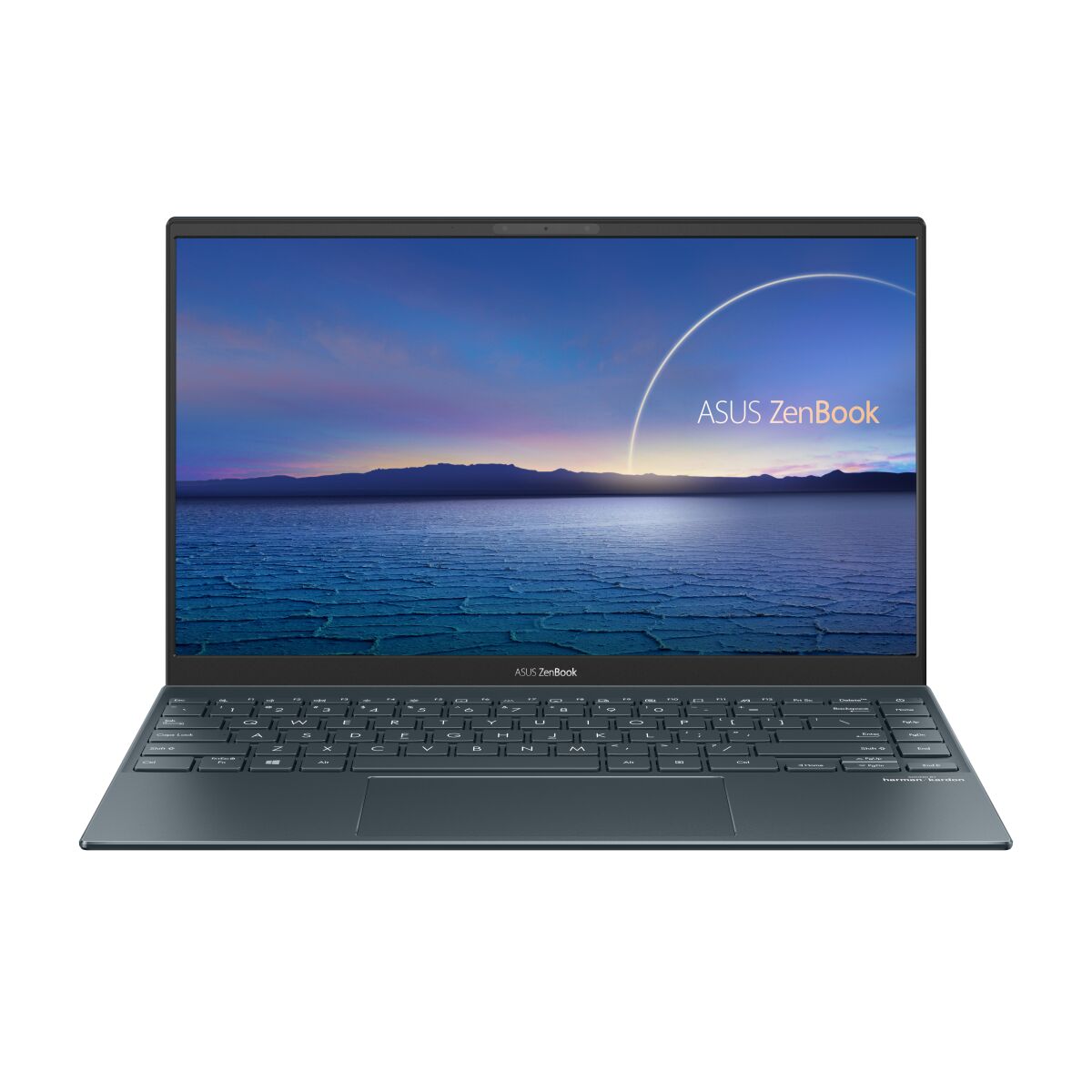 Two other features help differentiate the UX425 from the field. The first is a 1W screen option, which should theoretically help to extend battery life — Asus says it consumes 63.6 percent less power than most laptop displays do.
Two other features help differentiate the UX425 from the field. The first is a 1W screen option, which should theoretically help to extend battery life — Asus says it consumes 63.6 percent less power than most laptop displays do.
| Product Name | ASUS Zen Book UX425EA-HM046T (CORE i7 1165G7 2.8 GHZ, 16GB, 1TB, Win 10) |
|---|---|
| Weight | 1.17 Kg |
| Operating System | Windows 10 |
| Processor | CORE i7 1165G7 2.8 GHZ |
| Display | 14.0" FHD |
| Graphics | Intel HD Graphics |
| Memory | 16GB |
| Storage | 1TB SSD |
| Ports & Connectors | Bluetooth Wifi USB Ports =2 Type C Connectivity |
| Dimensions (W x D x H) | 319 x 208 x 13.9 |
| Manufacturer | Asus |
| Color | Grey |
| Country of Origin | United Arab Emirates |
Product Datasheet
-
Icon
Email
-
Icon
Telephone
-
Icon
Shipping Worldwide
Yes, that's right, we do!














